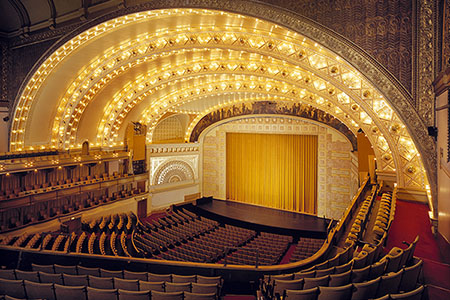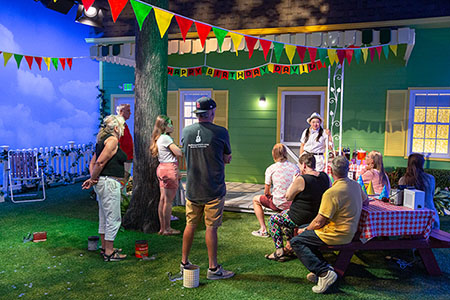
Grill cleaning and servicing is a dirty job, especially if you have ignored the chore for years. Jun. 24, 2018 – The July 4th Independence Day barbecue is a patriotic United States tradition that goes hand-in-hand with waving Old Glory and sipping a cold Budweiser – America’s beer. Whether they reside in a lakefront condominium with a balcony, or a spacious North Side home with a big backyard, city grill masters take great pride in the rite of cooking steaks, burgers, chicken, sea food, and veggies over an open flame. To brand the main course with the required flavor and sear marks, sophisticated barbecue masters typically require a fancy Viking, Wolf, or Lynx gas grill – or a popular mid-priced Weber model, fueled either with natural gas or propane. Grilling on old-fashioned charcoal is generally considered a primitive act left to Millennials on a budget. When the grilling is done, the king of meat typically gives the charred residue on the grates a scrape or two and tosses back another brew. Few lazy gas grill masters ever peek under the flavor bars or briquettes of their chrome-plated beauty to view years of residue rivaling the lava flow on a Hawaiian volcano.
Now I know why my grill had only one hot spot on the left, where tender, Angus filets cooked to perfection. With three inches of ash covering the fire pit below, and grease clogging two of the three burners, the heat dropped off dramatically on the right side of the unit. Grill cleaning and servicing is a dirty job, especially if you have ignored the chore for a dozen years. You’ll likely need equipment – your child’s beach shovel, U.S. Army issued entrenching tool, a roll of heavy duty paper towels, and lots of elbow grease. Use an empty wine crate as a perfect container to hold the two or three inches of grease and barbecue ash. This toxic material is not for the blue recycling bin. Lastly, remove the greasy old aluminum ash pan under the barbecue and install a new one. Scrape the grill grates but leave the old patina for vintage flavor. Ironically, after all this labor I noticed the grill igniter no longer worked, so I had another glass of wine and called the Firefixer.
“If a greasy grill bursts into flames, do not grab the garden hose and spray water on it,” Alleyne advised. “Water will not put the fire out. You must use a dry chemical fire extinguisher or sprinkle a box of baking soda on it.” A $145 service call from Firefixer includes a thorough gas grill inspection, interior cleaning, safety inspection, limited seasonal warranty, and all of the following...
Igniter often needs replacement Grill replacement parts are not included, however. One of the replacement parts frequently needed is the igniter, which typically costs $40 to $100, depending on the type of grill. Other replaceable parts include grill grates, flavor bars, and thermostat. The Firefixer gas grill service and cleaning also includes inspection of the gas supply line to see if the grill is properly installed and vented, a check of all wiring and gas components, and a review to see if the appliance and installation are compliant with municipal codes. “We also will give a free, honest assessment of the condition of your grill, what it will cost to completely rehab it, or whether you should dump it and buy a new one,” Alleyne said. If the grill was left uncovered over several winters, it could have severely rusted parts, including grill head, grates, cabinet, or floor. If it is beyond repair, buy a new one and Firefixer will assemble, set up, and install a new gas grill to an existing gas line for $225. The fee includes a one-year warranty. When gas grill shopping, you will find that prices can run the gamut. An affordable Char-Broil grill can be purchased for $199 or less at Lowe’s or Home Depot, and mid-priced Weber grills run $600-plus and feature many replaceable parts. For elite grill masters, top-of-the-line Lynx, Viking, and Wolf grills range from $2,000 to $8,000, depending on size.
Firefixer services all types of gas barbecue grills, including natural gas and propane. For more information, contact Alleyne at Steve@FireFixer.com or 773-951-7439.
|







 Website:
Website: 








